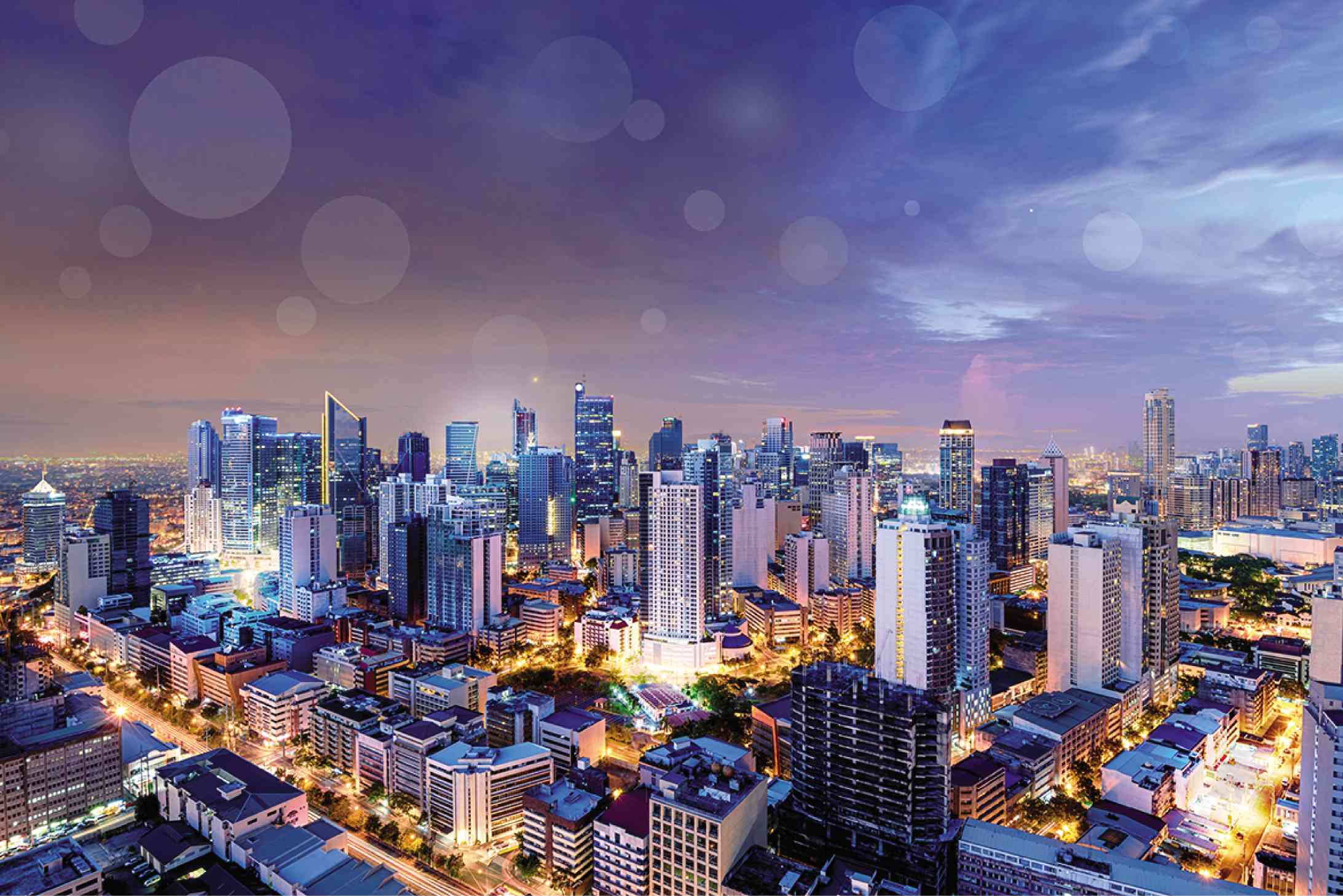Makati remains most coveted prime address in the Metro
In the stock market, “buy low, sell high” is the golden rule. In Philippine real estate, the same principle applies but with one big difference: prices of land almost certainly will not be going down again. So if you are looking to invest, that time is now.
Land values are expected to appreciate further, especially with the scarcity of developable land in major Philippine cities. Data from real estate services and investment management company Colliers International reveal that as of the third quarter of 2018, the value of prime land in Makati reached PHP701,000/sq.m, with Fort Bonifacio not far behind at PHP 601,500/sq.m. The third on the list may come as a surprise to those not closely watching the property market, as values in the Manila Bay Area have already overtaken those of Ortigas Center, at PHP280,000/sq.m versus PHP250,000/sq.m.
According to Colliers’ forecasts, all these areas are still expected to rise in value, with Makati projected to achieve a growth of 26 percent by the third quarter of 2019.
Historical highs
In the residential arena, luxury condominiums within the Makati central business district still command the highest prices according to Colliers International.
“We’re seeing historical highs now in real estate, particularly in office and residential developments. Land values continue to go up, and developers are increasing their prices. There is demand and there are people buying at those prices,” said Richard Raymundo, managing director of Colliers International Philippines.
Article continues after this advertisementPremier address in Manila
Article continues after this advertisementDespite newer developments all over Metro Manila, the City of Makati still holds a certain kind of prestige. On paper, it certainly has a lot of things going for it.
“First, it is seen as the premier business district in the country. The top companies are still here. It is still a well master-planned development,” Raymundo said.
Makati’s busiest thoroughfare, Ayala Avenue, is often called the Wall Street of the Philippines for good reason. Along this stretch are five-star hotels, entry points to the main commercial centers, and headquarters of multinational companies, banks, and other financial institutions. Also found on an ultra-prime parcel of Ayala Avenue is Apartment Ridge, which houses some of the most desirable residential developments in the city.
“Second, with traffic getting worse in the Philippines, there are a lot of people who want to be strategically located where they live. You could be stuck in traffic for one or two hours going to work, so you want to be in an area with a strategic location. Third, there are the supporting facilities, amenities, and institutions. You want to be in an area which is close to corporations or work, close to schools, close to retail centers. All these make Makati a viable location,” Raymundo further explained.
First in the country
You might also add to this list the appeal of holding on to a “limited edition” property. Rising soon is an ultra-luxury project that will stand on the very last vacant plot of land on Apartment Ridge—this is as prime as it gets.
SMDC and Federal Land—the real estate companies of two of the most respected business families in the Philippines—joined together to bring in the first Foster + Partners project in the country, which promises to be the crowning jewel of Ayala Avenue’s already stunning skyline and is expected to push land values to record-breaking levels.
Befitting a project of such grand stature, Foster + Partners, one of the world’s most renowned architectural firms, was brought into the picture. With Pritzker Architecture Prize-winning architect Norman Foster at the helm, the firm’s reputation rests on such feats of architecture including Hong Kong’s HSBC Building, London’s 30 St Mary Axe—popularly known as The Gherkin, New York’s Hearst Tower, and countless others.
The prestige that comes with having a Foster + Partners designed property comes with a price. Its soon-to-be-completed project in New York, One Hundred East Fifty-Third Street, has studio units (about 96 sqm) priced at $2.25 million, or $23,437 per sqm. Over in Hong Kong, the firm designed the sprawling Residence Bel-Air complex, which was completed in the mid-2000s. On the secondary market, unit prices remained impressive at HK$43.8 million for a 1,682 sq.ft unit (156.26 sqm.)—that’s around P1.9 million per sqm.
Design philosophy
“The quest for quality embraces the physical performance of buildings—how well will they endure in a volatile world? Will they survive or become obsolete? Does the thinking behind their design anticipate needs that might not have been defined when they were created? Only time will tell, and so we design buildings that are flexible and able to accommodate change,” Foster once wrote, summarizing his design philosophy.
All these elements are expected to be evident once the first Foster + Partners Philippine project is complete, rising above all else along Ayala Avenue.
Inside, the pursuit of science and architecture will be on display, as each unit will be column-free and will make use of double-slab floor construction, allowing residents to design and furnish their homes as they please. Designed with privacy in mind, no two units will face each other, with the best units offering sweeping 270-degree views of the city.
In keeping with Foster’s hallmark of designing structures with the ecology and environment in mind, the first Foster + Partners project in the Philippines will be equipped with efficient AC and lighting systems, exterior horizontal fins that will provide natural ventilation and shade, as well as an outer shell of high-performance glass to maximize insulation benefits. Also meriting a closer look is the generous green spaces that residents can enjoy.
“Cities are defined by their architecture,” Raymundo said. With Foster + Partners coming in with its first project in the country, the metro is getting a bold statement. “It’s something that Filipinos can crow about, that we will have a very prestigious architect with a work in the country. That’s something to watch out for.”
